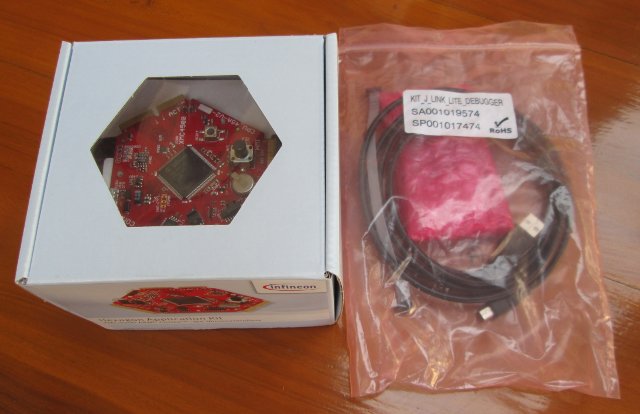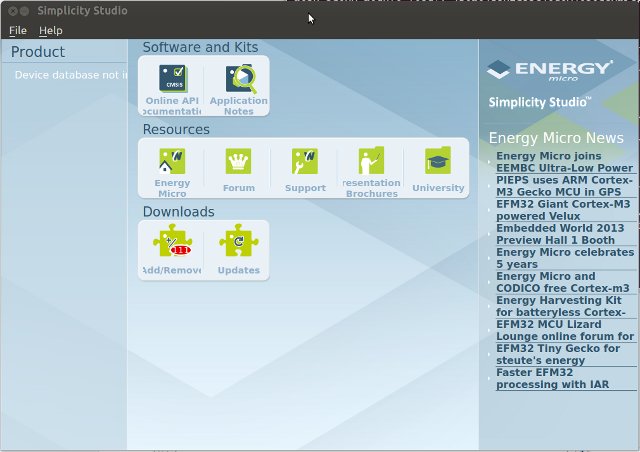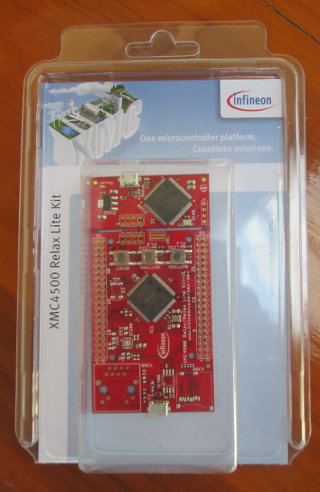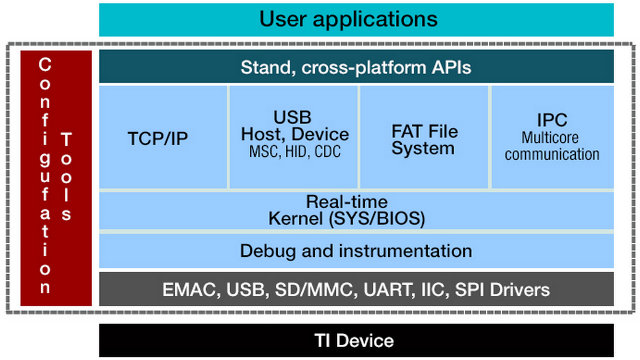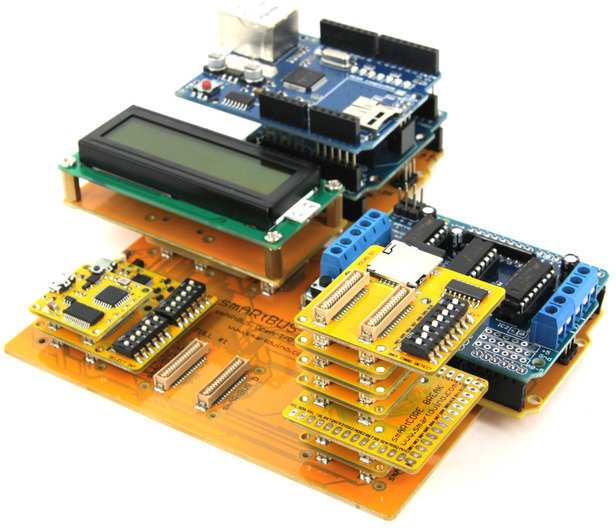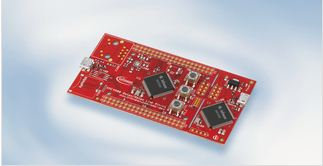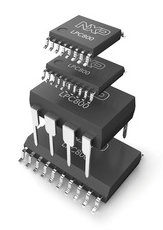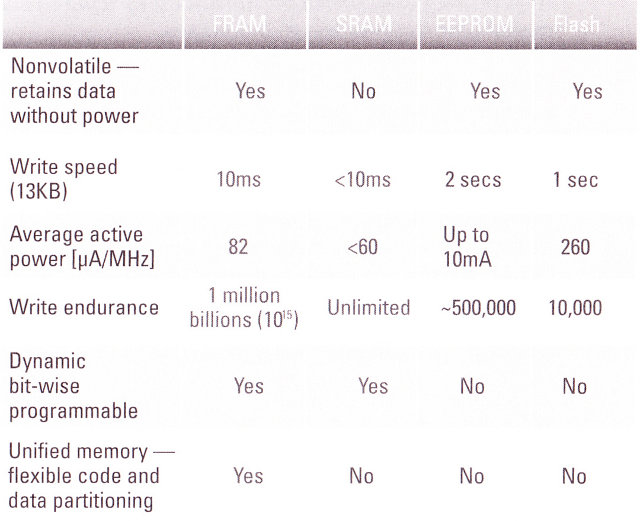A few months ago, Infineon sent me XMC4500 Relax Lite Kit for review, and I wrote a short Getting Started Guide about this 10 Euros Cortex M4 devkit. This month, I’ve received another XMC4500 kit with more features and expansion abilities: XMC4500 Enterprise Edition which is one of their Hexagon Application Kit. I received two packages: CPU Board XMC4500 General Purpose (CPU_45A-V2) with accessories (55 Euros) – This is what you get when you order to Basic Kit. J-Link Lite Cortex-M Debugger (40 Euros) Let’s open the packages and see what’s inside. In the first package, we’ve got XMC4500 CPU board, a pin extension board that can be used on any of the 3 extension connectors of the CPU board to access the signals easily, and a microUSB to USB cable for power. The JLink debugger comes with a 10-pin ribbon cable, and a microUSB to USB cable to connect to the […]
ARM MCU Development in Linux with Energy Micro’s Simplicity Studio, Eclipse, and CodeSourcery Toolchain
Quite a few months ago, I received an Energy Micro EFM32 Tiny Gecko Starter Kit, but I haven’t done much with it. But recently I saw a tweet from EnergyMicro about Simplicity Studio supports for Ubuntu, and I know it can be problematic to find proper tools for ARM MCU development in Linux, so I decided to give it a try. The first part is about Simplicity Studio, and energyAwareTools which are specific to Energy Micro, but the second part deals with setting up Eclipse and CodeSourcery ARM toolchain for MCU development which should be reusable for other MCUs from vendors such as Texas Instruments, NXP and STMicro. I’ve used a PC running Ubuntu 12.04 64-bit with the instructions below. Installing Simplicity Studio and energyAwareTools in Ubuntu Simplicity Studio is part of the 4 steps of the getting started guide with EFM32 MCUs. It has been available for Linux for […]
Getting Started with Infineon XMC4500 Relax Lite Kit and DAVE 3 IDE
Infineon Relax Lite Kit is a 10 Euros development kit based on Infineon XMC4500 Cortex M4 MCU with 160 KB SRAM and 1 MB flash, and featuring 2 USB OTG ports for debugging and powering up the board, 3 buttons (including reset), 2 LEDs, and 2 headers (through holes) giving access to the signals from the MCU such SPI, I2C, I2S, UART, CAN, ADC, DAC and PMW. The kit if available online via Hitec, but unless you live in Germany, this is not an interesting option, as international shipping costs over 100 Euros. So you’d better check local distributors in your country. The package only comes with the board, and you’ll need a USB to microUSB to power the board. To get started, simply connect the board via the USB cable to one of the USB OTG connectors, and to a Windows PC. The power LED (green) should lit up, […]
TI Releases TI-RTOS, a Free Real Time Operating System for MCUs
Texas Instruments announced TI-RTOS, a complete real-time operating system based on a preemptive multithreading kernel for its MCU platforms. TI-RTOSs includes SYS/BIOS real-time kernel and network developer kit (NDK) TCP/IP stack. TI expects this new OS to speed-up software development by eliminating the need to write complex system software such as schedulers, protocol stacks, and low-level drivers. TI-RTOS features and benefits: Complete embedded operating environmentthat provides full middleware and drivers including: Deterministic, real-time multitasking kernel (SYS/BIOS) TCP/IP stack, including network applications USB, EMAC, MMC/SD host and device stacks and class drivers FAT-compatible file system fully integrated with C RTS file I/O functions Ethernet, USB, UART, I2C and SD device drivers Low overhead core-to-core communication mechanism for dual-core devices Ability to move functions between dual core devices to optimize performance by using the same TI-RTOS kernel on both the ARM and C28x DSP cores. Documentation and examples to augment designs, including examples and […]
smARtDUINO Open System Provides a Low Cost Modular Arduino Platform
smARtDUINO is a new platform design by the former ARDUINO’s manufacturer (Update: This claim appears to be incorrect and a lie) composed of several compact modules and is a fully funded project on Kickstarter (Less than 3 days remain to become a sponsor). The platform is not based on a single processor, architecture or language but, makes use of an universal platform that can be used to connect components originally developed from different companies, technologies and form factors. For example, it is possible to integrate modules, accessories or shields from Arduino, Netduino, ChipKit and even interact with smartphone using an ADK module, without having to use a breadboard and/or soldering. Interoperability is made possible thanks to what they call “smARtBUS Open I/O“, which is a standard for connectors designed after looking at existing (Arduino) platforms on the market. The company opted for 2 solutions composed of 2 connectors: smARtBUS BASIC […]
Infineon Unveils Low Cost XMC4500 Relax & Relax Lite Kits For Cortex M4 XMC4500 MCUs
Infineon XMC4500 micro-controller family is based on ARM Cortex-M4 core @ 120 MHz, comes with 128 to 160 KB SRAM, 512 KB to 1 MB “Program Memory” as well as interfaces & peripherals, such as DMA, Ethernet, USB, ADC, DAC, SPI, I2C, I2S, UART and more. They are specifically designed for industrial applications supporting temperatures up to 125°C. The family was announced at Embedded World 2012 in February, and mass production started in May. This week at Electronica 2012, the company announced two low cost development kits for XMC4500 MCU: XMC4500 Relax Lite Kit (10 Euros): XMC4500 Microcontroller (ARM® Cortex™-M4F based) Detachable on-board debugger Power over USB ESD and reverse current protection 2 x user button and 2 x user LED 4 x SPI-Master, 3x I2C, 3 x I2S, 3 x UART, 2 x CAN, 17 x ADC (12 bit), 2 x DAC, 31x PMW mapped on 2 Pin Headers […]
NXP Launches Cortex M0+ LPC800 MCU and $15 LPC812-LPCXpresso Board
Following ARM Cortex M0+ announcement in March 2012, NXP Semiconductors has just announced the LPC800, tiny 32-bit MCUs based on Cortex M0+ core @ 30 MHz designed to replace 8-bit MCUs, together with LPCXpresso development board for the LPC800. The MCUs come with 1 to 4KB SRAM, 4 to 16 KB Flash, several serial interfaces and are available in SO20, TSSOP20, TSSOP16 and even DIP8 packages. Here are the key features of NXP new ultra low power 32-bit MCU family: ARM Cortex-M0+processor up to 30 MHz, software compatible with Cortex M0, M3 and M4 cores Memories: 4 to 16 kB Flash (with 64 Byte page size) 1 to 4 kB SRAM Serial Peripherals: Up to 3 USART interfaces Up to 2 SPI controllers 1x I2C-bus interface Timers: Multiple-channel multi-rate timer (MRT) State Configurable Timer (SCT) Self Wake-up Timer (WKT) clocked from either the IRC or a low-power clock source Windowed […]
FRAM (Ferroelectric Random Access Memory) and Texas Instruments MSP430FR57xx MCUs
I’ve recently received a complementary book entitled “Texas Instruments FRAM MCUs for DUMMIES” sent by Mouser, that provides technical and practical information about FRAM (Ferroelectric Random Access Memory) – pronounced F-RAM – and Texas Instruments MSP430FR57xx MCU series which makes use of this relatively new type of memory. FRAM is a non-volatile memory with power and write speed & endurance characteristics that almost matches SRAM capabilities, and leave traditional Flash and EEPROM memory in the dust in terms of performance, as you can see from the table and diagram below. At constant speed, FRAM consumes 250x less than Flash/EEPROM. Please note the FRAM write speed also depends on the MCU used, and a MCU @ 8MHz can write the FRAM @ 1400 kBps (Source: TI). However, you won’t see this type of memory in devices like smartphones anytime soon because the maximum size currently manufactured is 1MB, density is higher […]


